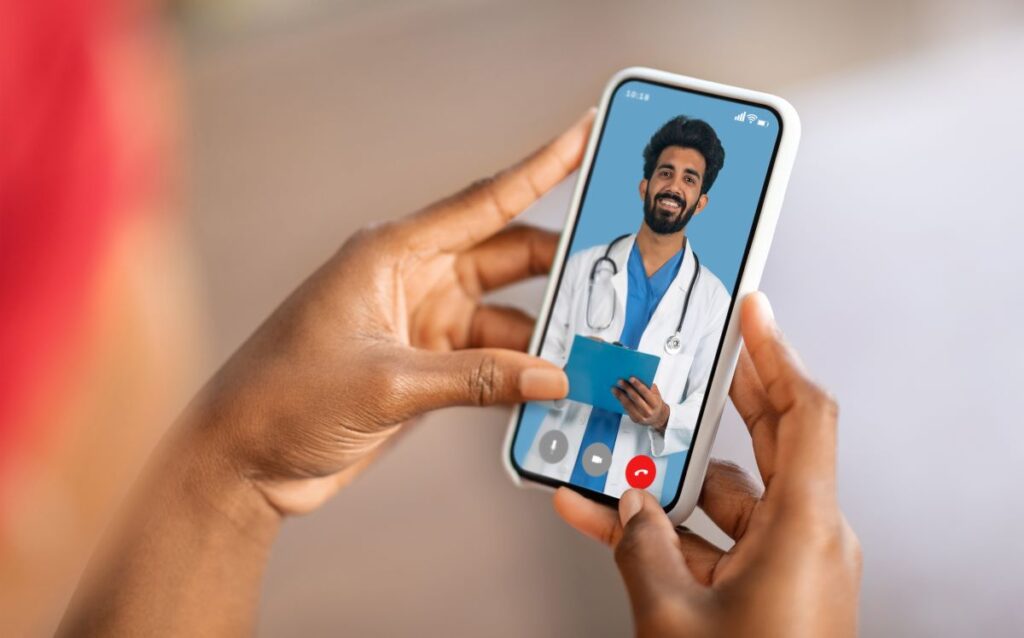In an era where data reigns supreme and technological advancements continue to reshape industries, the realm of healthcare stands at the forefront of a digital transformation. At the intersection of medicine and technology lies the burgeoning field of Doctor Informatics, a discipline poised to revolutionize healthcare delivery, enhance patient outcomes, streamline clinical workflows, and empower medical professionals with actionable insights derived from data-driven decision-making.
Understanding Doctor Informatics
Doctor Informatics, also known as Clinical Informatics, represents the convergence of medical expertise and information technology to optimize healthcare processes, facilitate evidence-based practice, and improve overall patient care. This specialized domain leverages data analytics, health information systems, electronic health records (EHRs), telemedicine solutions, and artificial intelligence (AI) to augment clinical decision-making, enhance diagnostic accuracy, personalize treatment approaches, and drive efficiencies within healthcare settings.
The Role of Doctor Informaticians
Doctor Informaticians are uniquely positioned at the nexus of healthcare and technology, serving as pivotal catalysts for innovation and transformation within clinical environments. These professionals possess a deep understanding of medical workflows, data analysis methodologies, health information systems, and emerging technologies, enabling them to bridge the gap between disparate healthcare stakeholders and drive strategic initiatives aimed at optimizing patient care delivery.
Doctor Informaticians play a multifaceted role within healthcare organizations, including:
- Clinical Decision Support: By integrating clinical guidelines, best practices, and evidence-based protocols into health information systems, Doctor Informaticians enable real-time decision support for healthcare providers, ensuring adherence to standardized care pathways and enhancing patient safety.
- Health Data Analytics: Leveraging advanced analytics tools and techniques, Doctor Informaticians extract actionable insights from vast volumes of healthcare data, facilitating performance monitoring, quality improvement initiatives, population health management, and predictive modeling for disease prevention and intervention.
- EHR Optimization: Doctor Informaticians collaborate with IT teams and clinical staff to design and implement user-friendly electronic health record systems that streamline documentation, improve data interoperability, enhance communication among care team members, and minimize administrative burdens on clinicians.
- Telemedicine Integration: With the proliferation of telehealth services, Doctor Informaticians play a pivotal role in integrating virtual care platforms, remote monitoring technologies, and teleconsultation capabilities into existing healthcare workflows, expanding access to quality care and improving patient engagement.
- AI and Machine Learning Applications: Harnessing the power of artificial intelligence and machine learning algorithms, Doctor Informaticians develop predictive analytics models, clinical decision support tools, image recognition systems, and natural language processing solutions to augment diagnostic accuracy, identify treatment trends, and personalize patient care pathways.

Key Benefits of Doctor Informatics
The adoption of Doctor Informatics holds immense potential for transforming healthcare delivery and driving positive outcomes across the care continuum. Some key benefits include:
- Enhanced Clinical Decision-Making: By providing clinicians with timely access to comprehensive patient data, evidence-based guidelines, and predictive analytics, Doctor Informatics empowers healthcare providers to make informed decisions that are aligned with the latest clinical evidence and personalized patient needs.
- Improved Patient Outcomes: Through the optimization of care pathways, early identification of high-risk patients, and proactive interventions enabled by data-driven insights, Doctor Informatics contributes to better health outcomes, reduced hospital readmissions, and enhanced patient satisfaction.
- Efficiency and Workflow Optimization: Streamlining administrative tasks, automating routine processes, and reducing documentation burdens on clinicians, Doctor Informatics enhances operational efficiency within healthcare organizations, allowing care teams to focus on delivering high-quality patient care.
- Population Health Management: Doctor Informatics facilitates population health initiatives by identifying at-risk populations, stratifying patients based on disease severity, monitoring health outcomes at a population level, and implementing preventive strategies to improve community health metrics.
- Interoperability and Data Exchange: By promoting data standardization, interoperability among health information systems, and secure data exchange protocols, Doctor Informatics enhances care coordination among different healthcare providers, fosters seamless communication, and ensures the continuity of care across diverse care settings.
- Research and Innovation: Doctor Informatics plays a pivotal role in advancing medical research, clinical trials, and evidence-based practice by enabling data-driven insights, facilitating collaborative research initiatives, and accelerating the translation of research findings into clinical practice.
The Evolution of Doctor Informatics in Healthcare
As we delve deeper into the evolution of Doctor Informatics in healthcare, it becomes evident that this transformative discipline has undergone significant advancements and innovations over the years. From the early adoption of electronic health records to the integration of artificial intelligence and predictive analytics, the journey of Doctor Informatics reflects a continuous quest for improving patient care, enhancing clinical outcomes, and optimizing healthcare processes.
Historical Perspectives
The roots of Doctor Informatics can be traced back to the early initiatives of digitizing patient records, automating administrative tasks, and standardizing healthcare information systems. The introduction of electronic health records (EHRs) in the late 20th century marked a pivotal moment in healthcare informatics, laying the foundation for seamless data capture, storage, and retrieval within clinical environments.
As healthcare organizations transitioned from paper-based documentation to digital records, the need for interoperability, data exchange standards, and user-friendly interfaces became paramount. Doctor Informaticians played a critical role in designing customized EHR systems, training clinical staff on data entry protocols, and optimizing workflows to align with regulatory requirements and best practices.
Technological Advancements
With rapid advancements in technology and the advent of big data analytics, cloud computing, and artificial intelligence, the landscape of Doctor Informatics has witnessed a paradigm shift towards data-driven decision-making, precision medicine, and personalized healthcare delivery. The integration of predictive analytics models, machine learning algorithms, and natural language processing tools has enabled healthcare providers to extract actionable insights from vast volumes of healthcare data, predict patient health outcomes, and tailor treatment approaches based on individual patient characteristics.
Telemedicine platforms, remote monitoring devices, and wearable sensors have further expanded the reach of Doctor Informatics, allowing for real-time patient monitoring, virtual consultations, and remote care delivery. The convergence of IoT devices, mobile health applications, and interoperable health information systems has paved the way for connected care ecosystems where patient data flows seamlessly across care settings, enabling holistic care coordination and continuity.
Clinical Applications
In the realm of clinical applications, Doctor Informatics has transformed the way healthcare is delivered, managed, and experienced. Clinical decision support systems embedded within EHRs provide clinicians with evidence-based guidelines, drug interaction alerts, and diagnostic decision-making tools, enhancing treatment accuracy, reducing medical errors, and improving patient safety.
Population health management platforms powered by data analytics enable healthcare organizations to identify high-risk populations, stratify patients based on health risks, and implement preventive interventions to improve community health outcomes. Telehealth solutions offer virtual care options, remote monitoring capabilities, and digital consultation services, expanding access to care, especially in underserved communities and rural areas.
Emerging Trends and Challenges
Looking ahead, the future of Doctor Informatics is poised for further innovation and disruption, driven by emerging technologies, changing patient expectations, and evolving healthcare paradigms. The rise of precision medicine, genomics, and pharmacogenomics heralds a new era of personalized healthcare, where treatment regimens are tailored to individual genetic profiles, lifestyle factors, and environmental influences.
Blockchain technology holds the promise of revolutionizing health data management, ensuring data privacy, and enabling secure data exchange between healthcare stakeholders. Virtual reality simulations, augmented reality applications, and immersive technologies are reshaping medical education, surgical training, and patient education, offering novel ways to visualize complex medical concepts and enhance clinical skills.
However, alongside these transformative trends, Doctor Informatics also faces challenges related to data privacy, cybersecurity threats, interoperability barriers, and regulatory compliance issues. As healthcare systems grapple with the complexities of managing vast amounts of sensitive patient data, ensuring data security, confidentiality, and integrity remains a paramount concern for Doctor Informaticians and healthcare stakeholders.

Future Trends and Innovations in Doctor Informatics
As we navigate the evolving landscape of Doctor Informatics, several key opportunities and directions emerge for healthcare organizations, technology innovators, and policy makers to harness the full potential of data-driven healthcare delivery. Investing in interoperable health information systems, promoting data standardization, and fostering collaboration among healthcare stakeholders are essential steps towards achieving seamless care coordination, data exchange, and patient engagement.
Embracing AI-driven predictive analytics, machine learning algorithms, and prescriptive insights can empower healthcare providers to anticipate patient health risks, prevent adverse events, and personalize treatment plans based on predictive models. Building robust telemedicine infrastructures, expanding access to virtual care options, and integrating remote monitoring technologies can bridge healthcare disparities, improve health outcomes, and enhance patient experiences.
Furthermore, promoting digital health literacy among healthcare professionals, patients, and caregivers is crucial for fostering a culture of innovation, collaboration, and continuous learning within healthcare organizations. By investing in training programs, educational initiatives, and knowledge-sharing platforms, healthcare systems can empower stakeholders to leverage digital tools, technology solutions, and data insights to drive positive outcomes, improve care quality, and enhance patient safety.
As technology continues to evolve at a rapid pace, the future of Doctor Informatics holds immense promise for transforming healthcare delivery, shaping clinical practice, and revolutionizing patient care. Some emerging trends and innovations in Doctor Informatics include:
- Precision Medicine: Leveraging genomic data, biomarkers, and advanced analytics, Doctor Informatics enables the practice of precision medicine, where treatment approaches are tailored to individual patient characteristics, genetic profiles, and disease susceptibilities, leading to more targeted and effective therapies.
- IoT and Wearable Devices: Integration of Internet of Things (IoT) devices, wearable sensors, and remote monitoring technologies into healthcare ecosystems allows for continuous patient monitoring, real-time data capture, and early detection of health anomalies, enhancing preventive care and chronic disease management.
- Blockchain Technology: By fostering secure data exchange, ensuring data integrity and privacy, and enabling transparent audit trails for health information, blockchain technology holds the potential to revolutionize health data management, interoperability, and patient-centered care delivery.
- Virtual Reality and Augmented Reality: Immersive technologies such as virtual reality (VR) and augmented reality (AR) are reshaping medical education, surgical training, patient education, and therapy delivery, providing novel ways to visualize complex medical concepts, simulate medical procedures, and enhance patient engagement.
- Predictive Analytics and Prescriptive Insights: Through the integration of advanced predictive analytics models and prescriptive insights, Doctor Informatics enables healthcare providers to forecast patient health risks, prevent adverse events, optimize treatment regimens, and tailor interventions based on predictive algorithms.
Conclusion: Doctor Informatics, the Healthcare Delivery Revolution
In conclusion, Doctor Informatics represents a transformative force within the healthcare landscape, reshaping clinical practice, elevating patient care standards, and driving innovation across healthcare organizations. By harnessing the power of data, technology, and medical expertise, Doctor Informaticians are paving the way for a future where healthcare delivery is optimized, personalized, and outcomes-driven. As healthcare systems continue to evolve and embrace digital solutions, the role of Doctor Informatics will become increasingly central in driving positive change, improving health outcomes, and revolutionizing the way healthcare is delivered and experienced.
In the journey towards a more efficient, equitable, and patient-centered healthcare system, Doctor Informatics stands as a beacon of innovation, collaboration, and excellence, guiding healthcare organizations towards a future where data-driven insights, technology-enabled care delivery, and human-centric practices converge to create a healthier world for all.
Doctor Informatics stands at the crossroads of healthcare innovation, technology disruption, and patient-centered care, offering a roadmap for transforming healthcare delivery, improving clinical outcomes, and reshaping the patient experience. By harnessing the power of data, technology, and medical expertise, Doctor Informaticians are driving a paradigm shift in healthcare, where evidence-based practice, personalized medicine, and data-driven insights converge to create a more efficient, equitable, and sustainable healthcare ecosystem.
As we embark on this transformative journey towards a data-driven future of healthcare, let us embrace the opportunities, address the challenges, and collaborate across disciplines to realize the full potential of Doctor Informatics in shaping the future of healthcare delivery. Together, we can revolutionize patient care, optimize clinical workflows, and empower healthcare systems to deliver high-quality, patient-centered care that transforms lives and enhances well-being for all.
Thank you for embarking on this transformative journey through Doctor Informatics. To continue exploring the latest insights and innovations in digital healthcare, wearables, and patient-centered care, we invite you to engage with us through the following channels:
- Digital Salutem Website: Stay updated with the latest digital health news and insights by visiting Digital Salutem.
- Healthcare Uncomplicated on YouTube: Dive deeper into the topics discussed in this article and more on our YouTube Channel.
- Digital Salutem Podcast: Tune in to our thought-provoking discussions on the Digital Salutem Podcast. Discover profound insights into healthcare transformation on Soundcloud and Spotify.
- Share Your Thoughts: Your feedback is invaluable to us! Share your opinions on digital health, patient care, wearables, or any relevant topics by commenting here or emailing us at info@digitalsalutem.com.
- Connect with Us: For inquiries regarding Digital Healthcare Transformation, Healthcare organizational growth, or Healthcare brand positioning, reach out to us at +44 (0)1273 458590.
Your engagement and insights are vital to advancing the dialogue around digital health, patient-centered care, and healthcare innovation. Together, we can shape a future where digital technologies empower individuals, transform healthcare delivery, and foster a more equitable, connected global community committed to improving health outcomes and well-being for all.
Embrace the possibilities of digital health and join us on this transformative journey towards a healthier, more connected world where technology, innovation, and compassion converge to redefine the future of healthcare. Thank you for embarking on this exploration of digital healthcare, where every digital advancement brings us closer to a future where health is accessible, personalized, and transformative.





